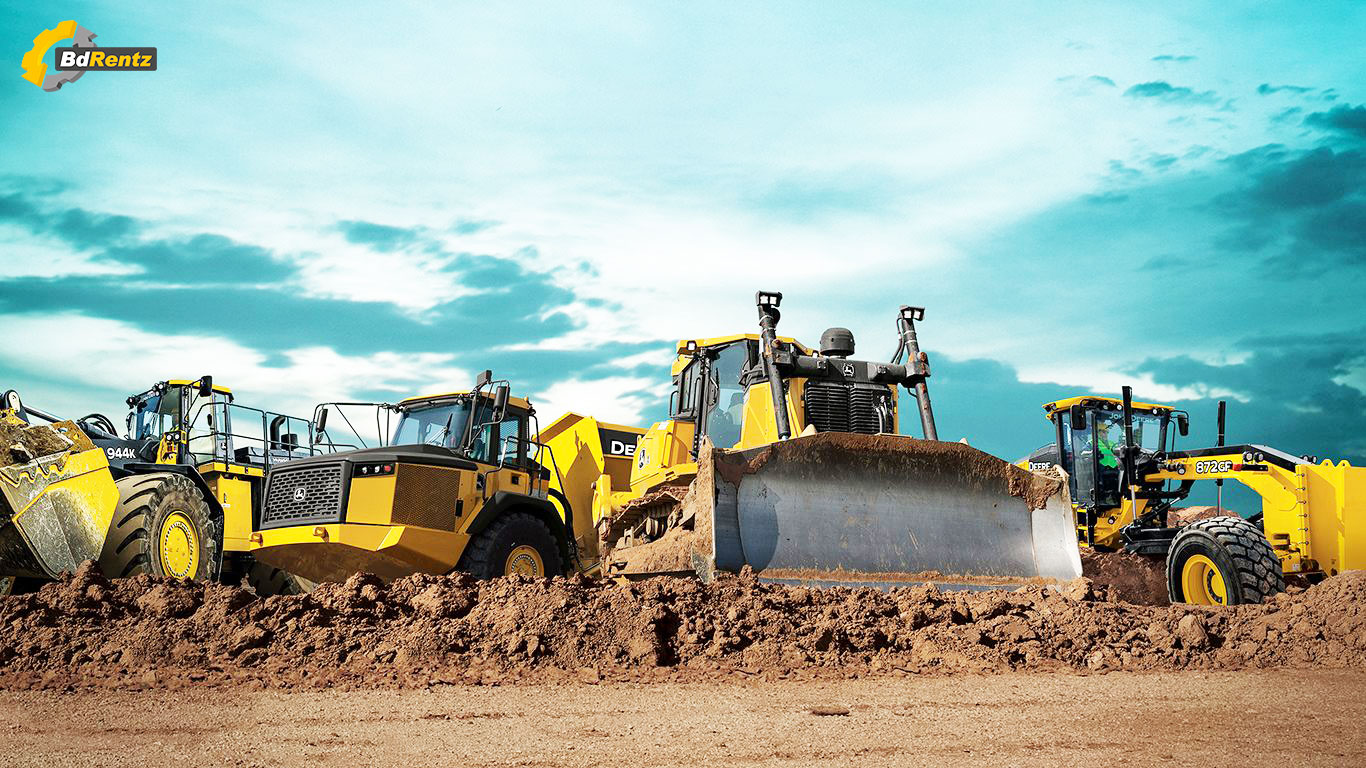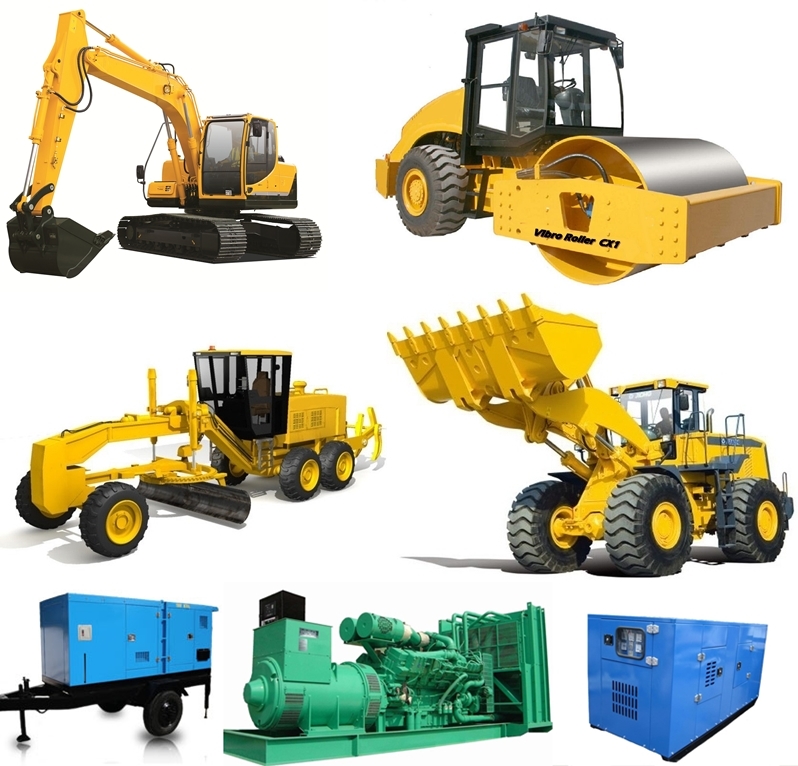Dozer Rental: Powerful Earthmoving Equipment for Your Construction Requirements
Dozer Rental: Powerful Earthmoving Equipment for Your Construction Requirements
Blog Article
Maximize Your Budget by Understanding the Prices Connected With Building And Construction Tools Leasings
Understanding the complete range of expenses related to building and construction tools rentals is crucial for optimizing your budget plan. While the first rental fee might seem simple, various additional expenditures-- such as transportation, gas additional charges, and upkeep-- can swiftly accumulate, influencing your monetary planning. Being mindful of various costs and the intricacies of rental contracts can assist prevent unanticipated economic worries. What strategies can be employed to effectively take care of these prices and make sure a more effective rental experience?
Overview of Rental Expenses
When thinking about construction tools leasings, recognizing the connected prices is extremely important for efficient budgeting and project preparation. Rental costs can differ substantially based on numerous elements, consisting of devices kind, period of service, and place. The preliminary rental cost usually mirrors the equipment's market need and its associated functional abilities, influencing the overall cost.
Along with the base rental rate, ancillary expenses might occur, such as transport fees, fuel additional charges, and maintenance fees. It is vital to represent these added expenditures to precisely analyze the total expense of renting out equipment. Moreover, the rental duration can impact prices; longer services might qualify for reduced prices, while short-term leasings may sustain greater everyday costs.

Failure of Rental Prices
A thorough understanding of rental prices is crucial for contractors and project managers aiming to maximize their spending plans. Rental prices for building and construction devices usually contain a number of parts, consisting of base prices, time-based costs, and use charges.
Base rates are the core charges connected with the rental of the equipment, often determined by the kind and size of the machinery. These rates can vary significantly, affected by aspects such as equipment need, schedule, and regional market trends. Time-based costs, which might be daily, weekly, or monthly, serve to suit various task timelines and rental durations.
Additionally, rental prices may include use charges, which are appropriate when tools is used beyond a defined limit, making sure that the rental company can account for damage. Seasonal demand fluctuations can likewise affect rental rates, with peak building and construction periods generally regulating greater rates.
In addition, comprehending the rental firm's policies pertaining to maintenance and insurance can provide additional understanding into the total cost framework. By evaluating these components, specialists can make informed decisions, making certain the choice of rental tools aligns with both project needs and spending plan restraints.
Extra Fees to Take Into Consideration
Understanding the complexities of additional fees is important for service providers to manage their general service expenses efficiently. Beyond the standard rental prices, different supplementary fees can significantly influence the overall cost of tools leasing. These charges commonly consist of distribution and pick-up charges, which can vary based on distance and logistics included in carrying the devices to and from the job website.
Additionally, some rental firms might impose gas additional charges if the equipment is returned with much less gas than when leased. It is likewise vital to understand possible cleansing charges, especially for customized tools that calls for detailed upkeep after usage.

Thoroughly reviewing the rental arrangement and clearing up these additional costs in advance can help service providers make my site sure and avoid unexpected costs that budget plans continue to be intact throughout the project lifecycle.
Upkeep and Repair Work Expenditures
Routine upkeep and repair expenditures are usually neglected factors that can dramatically influence the total cost of building equipment services. When leasing tools, it is vital to consider not just the rental fees however also the possible prices related to maintaining the equipment in ideal operating problem.
Many rental firms consist of standard maintenance as part of the rental arrangement; however, a lot more unforeseen failures or extensive repair work can result in added expenditures. It's vital to examine the rental agreement carefully to understand what upkeep services are covered and what obligations drop on the occupant.
Furthermore, equipment that is not well-kept can bring about inefficiencies at work view website website, possibly increasing and creating delays project expenses. To alleviate these threats, it is suggested to conduct routine assessments and preserve open interaction with the rental copyright pertaining to any problems that develop throughout use.
Insurance Coverage and Obligation Expenses
Insurance policy and liability prices are critical components that can significantly influence the total cost of construction equipment services (dozer rental). These costs make sure that both the rental company and the client are shielded from possible monetary losses arising from accidents, damages, or theft throughout the rental duration

Furthermore, clients must know any kind of deductibles or exclusions in the insurance plan, as these can affect prospective out-of-pocket expenses. Comprehending the terms and conditions of any type of insurance policy coverage is crucial to stay clear of unforeseen prices. Ultimately, budgeting for insurance coverage and liability costs can assist make check here certain a smoother rental experience and safeguard versus financial risks connected with construction jobs.
Verdict
In final thought, a detailed understanding of the expenses connected with building and construction tools leasings is necessary for efficient budget plan monitoring. Inevitably, educated decision-making relating to devices rentals contributes to the general success of construction ventures.
Rental expenses can vary dramatically based on numerous aspects, consisting of devices type, period of leasing, and location (aerial lift rental). The rental period can impact rates; longer leasings may certify for discounted prices, while short-term rentals might sustain higher day-to-day fees
By conducting detailed study and engaging with respectable rental companies, service providers can successfully browse the complexities of rental rates, inevitably maximizing their economic resources.
Past the basic rental prices, various supplementary costs can considerably influence the total expense of equipment leasing. Rental firms commonly offer responsibility insurance that covers injuries to 3rd events or damage to property, while tools damage insurance coverage can cover the price of repair work or substitute if the rented out equipment is damaged.
Report this page